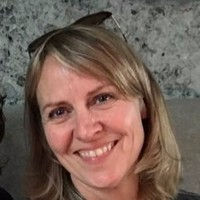Choices in Extraordinary Circumstances
- Hilde Huus
- Feb 28, 2017
- 4 min read
Updated: Nov 7, 2024
The Occupation of Norway by Nazi Germany was not unexpected. My father told me that there had been talk around the dinner table in his home about the possibility for some time before it actually happened. And while the Occupation was a brutal, violent, and terrifying time for many, Norway got off fairly lightly compared to some countries like Poland and the Ukraine, because Hitler believed that the Scandinavian “race” was closely related to the German “master race.” Sadly, many Norwegians sided with him and joined the Nazi Party or became collaborators. When my grandparents were arrested separately for their underground activities, it was Norwegian civilian police officers who arrested them on both occasions. But there were many, many Norwegians who actively resisted the Nazis in large ways and in small. Many young men like Trygve Ringereide (whose son Trygve John Ringereide spoke about his life at our February Distinguished Speakers event) put their lives on the line by escaping Norway to join the Norwegian Armed Forces that were fighting with the Allied Forces. Others performed daring acts of sabotage, sheltered fugitives, passed along secret messages, published illegal newspapers, shared food, or did whatever they could in ways large and small to help in the struggle against the fascism that had taken over their country.
My father was a boy of 12 living in the Majorstuen neighbourhood of Oslo when the Nazis took over. His parents were imprisoned, his school was taken over, and the family apartment was used by the Norwegian resistance movement for secret meetings and for storing food. There were Nazi soldiers everywhere. His older sister has reminded me more than once how lucky I am never to have experienced wartime, and I know she is right. A few years ago my parents and I watched a Norwegian film called “Max Manus” about one of the most famous Norwegian resistance fighters. A lot of the action in the film took place right in the Majorstuen neighbourhood. I asked my father afterwards if the film was true to life. He replied that it was, but it didn’t fully convey the sense of overwhelming danger that they lived with the whole time. I also asked him if they ever felt hopeless about it all. Did they really think that they would prevail in the end? “We never doubted that we would win” was his reply. “We always knew it would be over some day.”
My mother was a little girl living in the country during the Occupation so was less directly affected, but she remembers being put to bed fully dressed in case they had to escape into the woods, and her father making visits to a neighbour to secretly listen to news on a forbidden radio. She also remembers a wounded young Norwegian coming to the door one night looking for help, and the camp for Russian prisoners of war in the small town not far from their farm. The local residents would throw food to the prisoners, and some prisoners would throw back small carvings they had made out of matchboxes in gratitude. Those captured Russian soldiers were almost certainly all shot when they returned home at the end of the war.
Patriotism has two faces. It can inspire heroism in those who put their lives on the line to defend their country, like Trygve Ringereide and the many other Norwegians of that era who performed extraordinary acts of courage and daring. Some of those heroes did not survive the war, and others were deeply scarred by their experiences. “Post-traumatic stress disorder” we would call it today. They were forever changed by their experiences and those changes profoundly affected their families as well. But patriotism also led others to be stigmatized if it was somehow implied that they had not done enough to join the fight against the occupiers, for whatever reason. The aftereffects must have been far worse for the families of the Nazi sympathizers, even for children who had no say in their parents’ political decisions. And then there were the children of Norwegian women and German soldiers. They suffered greatly and felt unwelcome in both Norway and Germany.
In a ceremony at Oslo City Hall in January this year, Alf Tollef, Gerd Julie Bergljot Pettersen, Reidar Larsen and Rolf Alexander Syversen were honoured with a medal and Israeli state designation ‘Righteous Among the Nations’. In six weeks of an operation led by the four Norwegians, 358 Jews crossed the border to Sweden. Most Norwegian Jews were not so fortunate, however. Records show 758 were murdered, mostly at Auschwitz, and another 775 were arrested, detained or deported. My own father’s little playmate was among those taken away and murdered and this was something that haunted my father for the rest of his life.
People are people and although Norwegians can be proud of our heritage in many ways, we are not better than other people. But we can be grateful for those who, like Trygve Ringereide and others like him, found themselves in extraordinary circumstances and rose to the occasion. Their ideals and the choices they made continue to inspire us all these many years later.




Comments